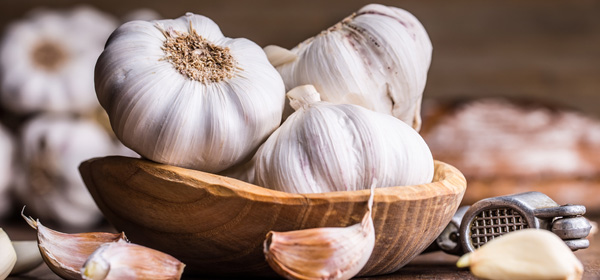Whether we’ve got a headache, aching joints or a hangover, many of us will pop a pill to ease the pain. However, recent research shows that doing so may cause us more harm than good.
But, is there another way?
Yes. It’s food.
Some foods are known for their anti-inflammatory properties, which can abate pain as well as, or even better than, over-the-counter medicines. Scientists perform ongoing research on certain foods to understand how they act and to test their capacity to relieve joint pain. And according to their research, these seven foods may actually help to alleviate pain.
1. Ginger
Ginger has been long known for its anti-inflammatory properties. It contains plant chemicals that can help to alleviate muscle and arthritis pain. Add it to your cooking (such as Asian and Indian dishes), juices and tea (perfect with lemon and honey!).
2. Oily fish
When it comes to fatty fish, think salmon, herring, sardines and mackerel. The omega-3 essential fatty acids in these fish can help to reduce joint inflammation and pain, including in the back and neck. For best results, aim for two serves of oily fish per week, or if you dislike the taste, speak to your doctor or naturopath about a good quality fish oil supplement.
3. Garlic
Garlic belongs to the allium family – which also includes onions and leeks. These aromatic vegetables contain plant compounds that may help with a number of conditions, including arthritis. Use it in your cooking – as much as your taste buds can handle!
4. Cherries
Cherries contain compounds called anthocyanins, which have strong anti-inflammatory actions. Research shows that cherries, particularly cherry juice, can help with muscle pain and osteoarthritis.
5. Turmeric
Turmeric, the Indian spice that gives curries its yellow hue, contains the active ingredient curcumin. Curcumin has a powerful anti-inflammatory action, which may ease the pain in achy joints, including joints affected by arthritis.
Unfortunately turmeric is not very well absorbed in the gut, so you need high doses – more so than what you’d get in food – for it to be effective. Speak to an accredited naturopath to see whether it’s worth your while taking turmeric supplements.
6. Foods rich in vitamin C
Berries, citrus fruits, kiwi and pineapples, for example, are rich in vitamin C. Vitamin C is rich in antioxidants that researchers believe may slow the progression of osteoarthritis.
7. Coffee
Coffee always seems to be in the news for either being good or bad for us. But when it comes to headaches, migraines and dental pain, coffee is in the good books. However, it’s a fine balance, as having too much can tip you the other way. See if you can limit yourself to no more than two standard cups of coffee per day.
No miracle foods
Bear in mind that there are no miracle foods. Research is still limited, and is usually performed in a small number of animals. But a good diet is more than likely to help, as is taking steps to look after your frame.
Read more at Arthritis Foundation, body+soul and Senior Planet.

